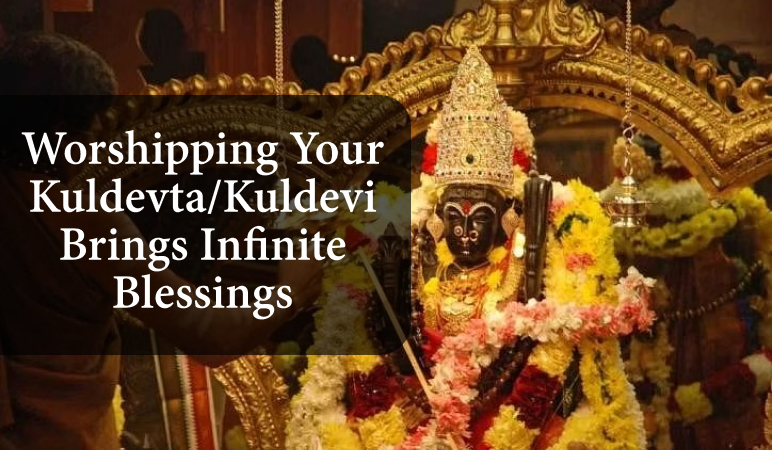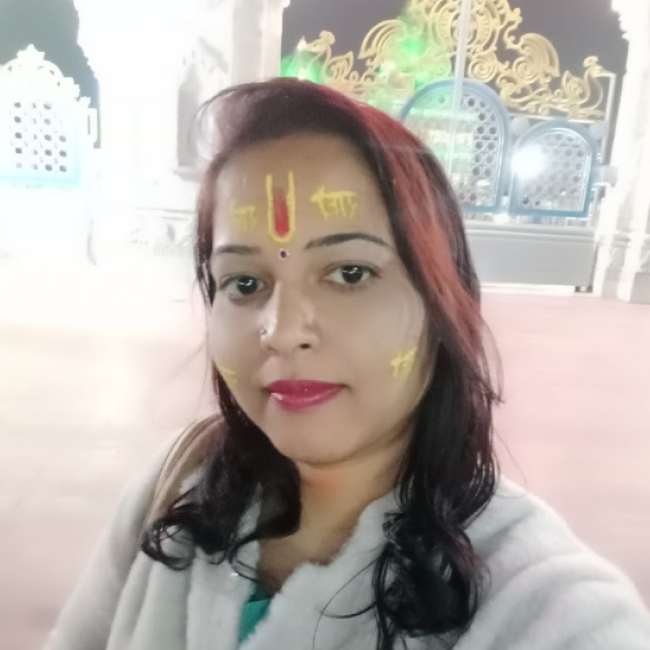Worship Your Kuldevta/Kuldevi For Infinite Blessings!

In Sanatna Hindu culture and families, Kuldevta/Kuldevi (the family deity) occupies a very sacred place. Every Hindu family has a Kuldevi or a Kuldevta, who is believed to be the protector of the family tree. We Hindus are descendants of one or another Rishi. We get gotras from the rishi whose descendant we are. Sanatan Hindu society had Varna Vyavastha, which specified different jobs for people as per their karma. However, due to constant invasion and Western influence, social structure changed and over a period of time, people lost connection with their roots. However, a considerable percentage of the population that was untouched by outside influence preserved many of our social, cultural and traditional beliefs. Kuldevi or Kuldevta, is one such rich and dharmic inheritance from our forefathers that we Hindus continue to venerate in all our capacities.
Who are Kuldevis or Kuldevatas?
Kul Devta, or Kul Devi, is a family deity in Hindu families who is revered by different tribes, clans, communities, or families.
In Hindi, “Kul Devta” means “male family deity” or “male clan deity,” while “Kul Devi” means “female family deity” or “female clan deity.” These deities are revered as guardians and protectors of the family lineage and worshipped by Hindu families to seek their blessings for protection, directions and guidance.
Many Hindu families and communities have a long-standing custom of honouring Kul Devta or Kul Devi. There is frequently a particular deity to which each family or clan is committed. Usually, a person chooses the Kul Devta or Kul Devi based on their ancestry, location, or historical connections.
The Importance Of Kuldevta/Kuldevi
Hindus today are disconnected from many of their rich ancient practices, mostly due to foreign influence. Due to invasions, plundering, vandalism, ethnic cleansing, and attacks on gurukuls and dharmic places for 1000 years, people started to protect themselves and their occupation by teaching their skills only to their children and thus their occupation remained within their family, shifting the tradition of occupation as per karma (work or skills) to occupation as per janma (birth). This is when people started moving out of their main family tree and forming their own clans and tribes for a more organised social system.
One belief says that as people started drifting apart from their main family tree due to their different occupations, the root rishi or his wife, who chose to start and lead a new clan based on his occupation, started being venerated as Kuldevta/Kuldevi. The Kuldevi, or Kuldevta, of a family is the first person to begin their clan in their tribe. They also protected their tribe or clan from outside enemies and invasions. Therefore, Kuldevta or Kuldevi, is given the highest status in any family.
Other believers are those who chose the manifestations of the main Hindu deities as their Kuldevi or Kuldevata. Like many Hindu families, they have different manifestations of Durga, Kali or Vishnu as their kuldevi or kuldevata. These deities are believed to have protected their ancestors from evil forces and several other problems.
In the Sanatan Hindu social system, the blessings of Kuldev, or Kuldevta, are very important for the prosperity, fortune and overall well being of every family member.
Why do Hindus Worship their Kuldevi or Kuldevta?
- The deity chosen as Kul Devta or Kul Devi is often believed to have a connection with the ancestors of the family or clan.
- People worship their Kul Devta, or Kul Devi, to seek protection for family members from various problems, including evil spirits, negative energies, and all types of dangers. People also seek blessings for their health, wellbeing, prosperity, and vansh vridhi.
- Many Hindu families worship their Kul Devta or Kul Devi, because it has been passed down through the years from generations to generations.
- It also gives a clan or community a significant identity.
Different locations and cultures have different Kul Devta/Kul Devi worship practices, ceremonies, and customs. It requires regular prayers, sacrifices, and festivities on particular days that are believed to be auspicious to honour the deity.
However, it is important to learn that while Kul Devta/Kul Devi worship is very common among Hindus, not all families, groups or individuals follow this tradition. There could be many reasons for this and one of them is that they are staying away from their native place for livelihood purposes, or that their forefathers did not pass on their family practices to them. When generation after generation does not visit their native place, they get disconnected from their roots and not following the puja practice of Kuldevi or Kuldevata is one of them. Also, in many cases, people have different personal beliefs, as Hinduism does not believe in binding its followers to a set of dogmas.
What Do the Blessings of Kuldevta/Kuldevi Mean?
The one who was all powerful, the one who protected the families and clans from all fears and evils, the one who provided all types of shelter, and the one who stood strong in bad times became the Kuldevta or Kuldevi or the deity of the family or clans. Those who were chosen as Kuldeva and Kuldevi are believed to have divine power or also hold cosmic connections. People and their descendants initiated the practice of worshipping them. The purpose of worshipping Kuldevas and Kuldevis was to ensure that their spiritual powers would help us live a very optimistic life and help us eliminate negative influences from our lives. Their blessings and the divine energy the family deities shower on their tribes ensure that people carry out their roles and responsibilities positively and make progress in their personal and professional lives.
Why One Must Worship Their Kudevi or Kuldevata
Your Kuldevi or Kul Devata is your protector or guardian, so in any ceremony or puja, they should be worshipped first. Ceremonies or pujas are considered incomplete without first invoking the Kuldevta or Kuldevi.
How Do You Find Out The Name Of Your Kula Devata?
If you do not know anything about your family deity, here is what you can do.
- Ask seniors and older people in your family.
- Ask people belonging to the same gotra or surname as you.
- Ask your village priest or the kula purohit (the family priest).
- If you are still unable to find the name of your family deity, continue worshipping Ishta devata (preferred deity). However, you can ask a knowledgeable person or a guru too.
However, if you fail to find the name, you can recite ‘Shri Kuladevatayai Namaha’. If you are lucky enough, you may know the name of your Kula Devata through someone at some point in your life.
Benefits Of Worshipping Kuladevata Puja
- The primary benefit of worshipping Kuladevi and Kuladeva is to form a Raksha Chakra (protective ring) around yourself and your family. This helps the family keep out all the evil spirits, evil forces, negative energy and other supernatural beings.
- Protection – no negative energy will be permitted to pose a threat or attack the family.
- It will help unite the family.
- You and your family will experience spiritual and dharmic progress, along with peace and success.
- You and your family will experience a good harvest and have healthy children.
Frequently Asked Questions (FAQs)
Q: Are Ishta Devta and Kuldevta the same?
A: ‘Ishta devta’ refers to a beloved deity, the one you feel close to your heart and feel like worshipping. Every individual can have his or her own Isht Devata. But Kuldevta or Kuldevi refers to ‘family deity’, the deity your family or clan worships from generation to generation.
Q: How do I know my Kula Devata or Kul Devi?
A: You can ask seniors in your family or village, your kul purohit, or people belonging to the same gotra as yours.
Q: Why is Kuldevta or Kuldevi important in Hinduism?
A: In Sanatan Hindu culture, a Kuldevta or Kuldevi is of utmost importance. They are their guardian and protector, and they guard the whole family against negative forces and evils. People worship their Kuldevta/Kuldevi to seek blessings for their growth, family lineage, prosperity and well-being.









